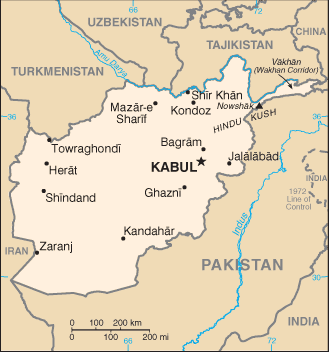Adding more confusion to the recent leadership battle in the Afghan Taliban, the group today issued a statement admitting that, as claimed by the Afghan government, their founder Mullah Omar died years ago, putting the official date of death at April 23, 2013.
 The statement claimed it was a “military decision” to keep Omar’s death a secret – the Taliban did not publicly admit to Omar’s death until July 30 of this year. The initial idea was to keep Mullah Omar’s death a secret until the end of the NATO occupation, which was supposed to be the end of 2014. NATO extended their presence, and the Taliban didn’t bother to go public with Omar’s death until the Afghan government called them out on it.
The statement claimed it was a “military decision” to keep Omar’s death a secret – the Taliban did not publicly admit to Omar’s death until July 30 of this year. The initial idea was to keep Mullah Omar’s death a secret until the end of the NATO occupation, which was supposed to be the end of 2014. NATO extended their presence, and the Taliban didn’t bother to go public with Omar’s death until the Afghan government called them out on it.
The admission by the Taliban means that official statements they issued under Omar’s name, the last of which came in mid-July, were part of an effort to present the policy after his death as still being under his direction. It also raises serious questions about the vote in early August to appoint Mullah Mansour as his successor.
The vote had lent credence to the idea that Omar was recently deceased, but if he was dead for almost two and a half years before the vote which installed Mansour, it both raises the question of who was de facto leader during that period, and why the vote at the Quetta Shura appeared to be so hastily organized and so haphazard.
Though officials claimed at the time Mansour was “unanimously” elected, it was only by a very limited number of commanders actually present, with a number of commanders not asked to vote on the matter, and a significant faction, led by Omar’s eldest son, walking out before the vote in protest.
It would be assumed that Omar’s son would have been among the few key commanders privy to their founder’s death, and with Mansour serving as his deputy it would only be natural he’d be among the candidates to replace him. It is unclear, then, why Mansour’s election appeared to both shock and anger Omar’s family, and why it just now starting to provoke direct infighting, if the question of succession was open for years.
The timing of this new statement is also likely important, as it comes amid talks at the Quetta Shura trying to resolve this leadership crisis, and is doubtless an extension of the behind-the-scenes efforts to reunify the movement.


